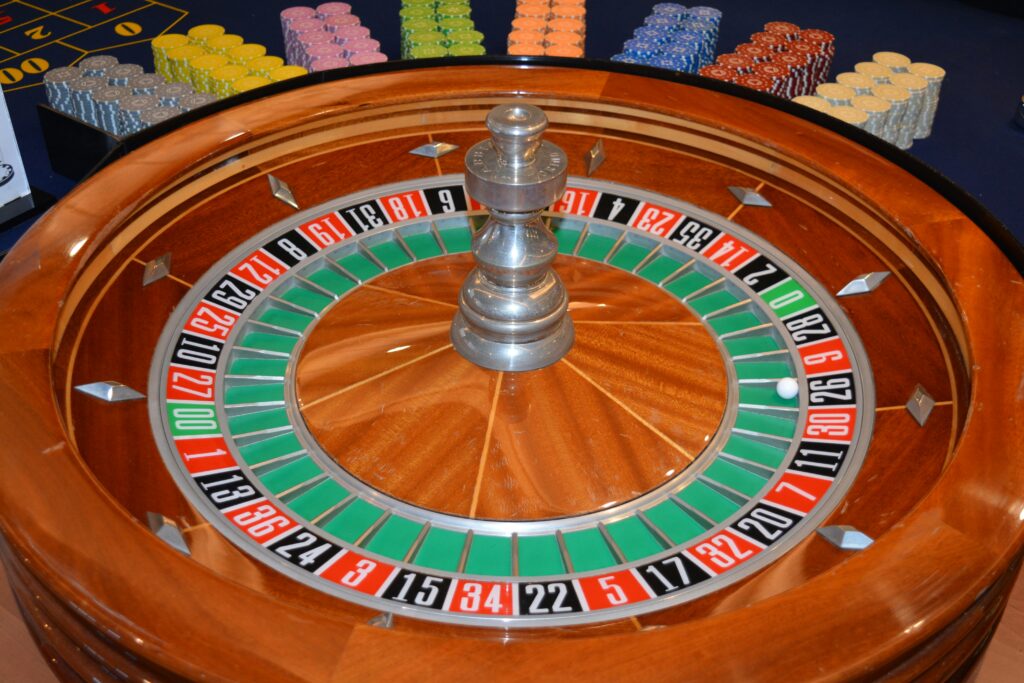Why Betting Limits Matter
Overspending in betting usually doesn’t start with a big, reckless wager. It starts with a small win, a quick loss, or a hit of excitement—just enough to pull people into a loop. That’s the psychology behind it: dopamine spikes, distorted risk perception, and the illusion of control. Before you know it, you’re no longer betting for fun; you’re chasing a feeling or trying to fix a loss.
Setting limits is how you break that loop. Limits turn gambling into entertainment with clear boundaries. They give you structure—so instead of guessing what feels right in the moment, you already know your max for the day or week. This keeps sessions shorter, decisions sharper, and emotions in check. It’s not about trying to win big quickly—it’s about long-term enjoyment without regret.
Doing this right means betting with a plan. You decide what you’re risking, when you walk away, and what you’re playing for. Impulse betting, by contrast, is like stepping into a storm without a jacket—sooner or later, you’re going to get soaked. With a solid strategy, you stay in control. Without one, the game plays you.
Step 1: Know Your True Budget
Before you can set smart betting limits, you need a clear idea of how much money you can actually afford to use. That starts with your monthly discretionary spending—the cash left over after you’ve paid for rent, food, bills, and other essentials. This isn’t about guessing. Grab your last two or three bank statements and look at the numbers. What’s your average monthly income? Subtract all the non-negotiables. What’s left is your entertainment pile.
Don’t lump entertainment in with living expenses. Betting falls into the same bucket as dining out, Netflix, and concert tickets. It’s optional, not critical. Treating it that way helps you stay honest about how much you can truly part with.
Consider the $200/month rule. It’s a basic cap some bettors use that balances enjoyment with restraint. You can split the amount weekly, stretch it across events, or hold off and use it all in one shot—your call. But once it’s spent, that’s it. No topping up, no second guessing. This rule works because it’s simple, measurable, and easy to stick to if you treat it like paying a bill: it has a hard ceiling.
Knowing your number—whatever it is—is the foundation. Without that, limits are just guesses.
Step 2: Set Personal Deposit and Loss Limits
Establishing firm personal limits is a foundational step toward responsible betting. These boundaries serve as a safety net that protects your budget and mental well-being, especially when emotions run high or you’re on a losing streak.
Break Down Your Caps
Before you begin placing bets, create structured limits for how much you can deposit or lose. Rather than going with vague ideas like “just a little,” define specific numbers across different timeframes:
- Daily Cap: Set a maximum amount you’re willing to deposit or lose each day. Example: $20/day
- Weekly Limit: Broaden the scope with a slightly higher cap to accommodate weekly entertainment budgeting. Example: $100/week
- Monthly Ceiling: This ensures your betting activity never interrupts your broader financial stability. Example: $300/month
These limits should reflect your true available entertainment budget, not hopeful assumptions about winnings.
Why Loss Limits Matter More Than Win Goals
While it’s tempting to chase winnings or set ambitious profit targets, loss limits safeguard your long-term engagement with betting platforms. Focusing only on win goals can cloud your judgment, encourage riskier bets, and trigger impulsive behavior.
Consider this:
- Win goals are unpredictable — they depend on outcomes beyond your control.
- Loss limits are proactive — they’re within your power to enforce, and they halt destructive streaks before they spiral.
Prioritizing how much you’re willing to lose—not how much you hope to gain—keeps betting in check.
Example Structures That Work
Here are a few user-inspired self-limit models that help maintain discipline:
- The 50/20/10 Rule: $50 weekly loss limit, no more than $20 per session, and $10 max per bet.
- Session-Limited Betting: No more than three sessions per week, with a hard stop after the third loss.
- Ratio Cap Strategy: For every $1 of profit target, accept no more than $2 in potential loss.
Setting clear personal deposit and loss limits isn’t about restriction—it’s about responsible gambling that remains enjoyable, predictable, and within your financial comfort zone.
Step 3: Leverage Bookmaker Tools
Most modern betting platforms now offer built-in tools to help users manage their playtime and spending habits. These aren’t just gimmicks—they’re actual guardrails that make smarter betting possible. Cooldown periods, time-outs, and betting limits are becoming standard features across the biggest apps.
A cooldown will lock you out of betting for a chosen timeframe—usually 24 hours to a week—offering space to reset if emotions are running high. Time-outs work similarly but can stretch longer (even up to a month). Some platforms also let you block specific types of bets or games, which is useful if you know your weak spots.
Here’s how to set them up: once logged in, head to your profile or account settings. Look for a section called “Responsible Gambling” or “Player Protection.” There, you’ll usually find sliders or checkboxes to customize your deposit limits, time-outs, session caps, and even total loss ceilings. It’s fast and mostly self-managed. You set the rules—and the system enforces them, no loopholes.
When it comes to tracking your activity, it breaks down into two camps: automated vs. manual. Most apps offer basic analytics (think: weekly summaries, playtime, net gain/loss). Automated tracking is seamless but a bit surface-level. Manual tracking—like using spreadsheets or a budgeting app—gives you more control and clarity, but it takes effort.
Use both if you can. Automated tools keep you in check when you’re busy; manual tracking forces you to face your numbers. That combo builds long-term awareness.
Curious about which platforms offer the most flexible tools? Dive deep at BetVlogHub.
Step 4: Track Betting Behavior
You don’t need fancy software to keep your betting under control. A basic spreadsheet or a simple budget app like YNAB or Mint is more than enough. The goal isn’t to track every cent—it’s to notice your patterns. When do you place bets? After work? Late at night? After a win—or a loss? Logging each bet helps you catch behaviors that can spiral: chasing losses, betting because you’re bored or stressed, or spacing out your wins to justify risky plays.
Look at your data weekly. Just 10 minutes. Ask: Are my losses creeping up? Am I betting more often without thinking? Am I betting in a bad mood? Self-reviews keep your habits in check. No one else is going to do this for you, and ignoring the numbers usually means trouble later.
Think of it as a quick reality check. Honest records beat gut feelings every time.
Step 5: Set Emotional and Time Limits Too
Most people think about money when setting betting limits. Time, though? That’s the one that slips under the radar. Why? Because when you’re in the zone, time bends. Half an hour turns into three. And that’s where things get slippery. Without time boundaries, it’s easy to lose both time and control.
Emotional betting creeps in quietly. It might show up as needing to “win back” a bad loss or riding the high of a lucky streak. Either way, bets shift from being calculated to being reactions—and that’s no good. Spotting emotional betting means watching for signs like frustration, mindless scrolling through odds, or betting when tired or upset. The fix isn’t a blackout—it’s a reset. Step away, log out, come back clear.
Try this: the 3-hour-per-week rule. It’s simple. Cap your betting time to three hours total—split however you like. It forces you to plan, choose wisely, and avoid emotional tailspins. Once you start guarding your time, you’ll notice clarity and control return. Because in the end, betting doesn’t just cost money—it costs focus, too.
Red Flags to Watch
Some behaviors are more than just bad habits—they’re warning signs. First off, if you’re hiding your bets from family or friends, it’s time to ask why. Openness is a strong indicator of healthy behavior. If you feel the need to keep people in the dark, there’s something deeper going on.
Consistently upping your limits over time is another big one. Set limits are supposed to hold the line. If you keep pushing them higher—telling yourself this week’s exception is no big deal—you’re not adjusting, you’re chasing. And it rarely ends well.
Then there’s reactive betting—laying down money when emotions are hot or stress levels are high. Betting should never feel like a release valve. That urgency to win back a loss or escape a rough day clouds judgment fast. Smart bettors pause, walk away, and come back with a clearer head. The moment you feel like you have to bet is usually the moment you shouldn’t.
Final Tips for Staying in Control
Betting discipline doesn’t come from willpower alone—it comes from structure. One of the smartest moves a bettor can make is to build in intentional pauses. Take days off, even when you’re ahead. Wanting to ‘ride the wave’ can quickly turn into riding a losing streak. Rest periods help you reset emotionally and mentally.
You don’t need to be active every day. In fact, you shouldn’t be. Setting strict boundaries—like only betting on weekends or taking one week off per month—can save you from burnout and impulse decisions. These breaks aren’t signs of weakness; they’re part of playing the long game.
And here’s the hard one: talk about it. Whether it’s with friends, a betting group, or even a journal, be honest about your habits and mindset. Saying things out loud often exposes patterns—weird motivations, emotional triggers, or spot-on strengths—you wouldn’t notice otherwise.
Discipline grows in gaps. Build the pauses. Stay grounded. And most importantly, stay honest with yourself.
Wrapping Up
Betting isn’t meant to be a rollercoaster. If it feels chaotic, something’s off. The smartest bettors don’t bet more—they bet better. It’s about having a clear plan going in and sticking to it under pressure. Limits aren’t there to restrict the fun; they’re the reason the fun lasts.
Good strategies are boring in the best way. You know what you can afford. You know when to stop. You’ve already made the hard choices before the game kicks off. That’s what keeps you from sliding off track.
In the end, chasing wins can drain you. Playing smart keeps you moving forward without burning out your bankroll—or your mindset. Stay in control, stay in the game.


 As both a co-founder and key contributor at BetVlogHub. Auritha drives the platform’s vision of blending betting insights with cutting-edge technology. Her work focuses on innovation, user experience, and building resources that empower readers to make smarter betting decisions.
As both a co-founder and key contributor at BetVlogHub. Auritha drives the platform’s vision of blending betting insights with cutting-edge technology. Her work focuses on innovation, user experience, and building resources that empower readers to make smarter betting decisions.

